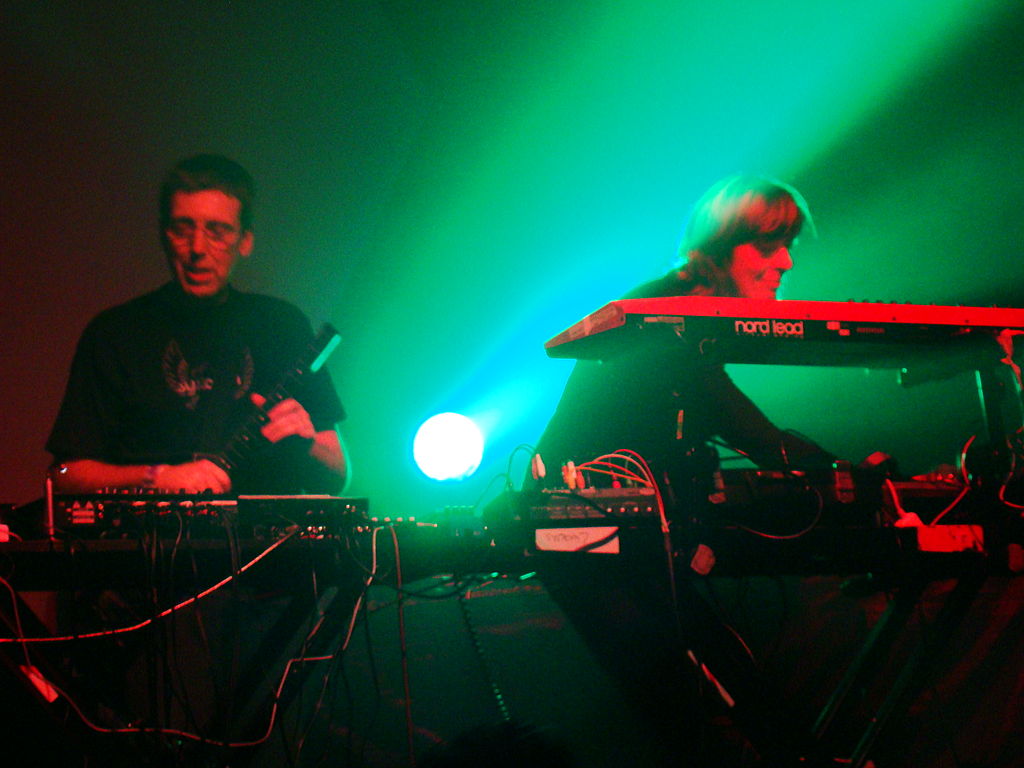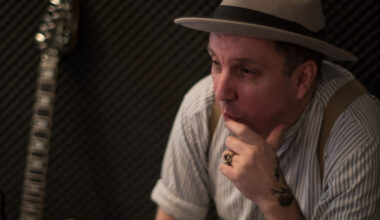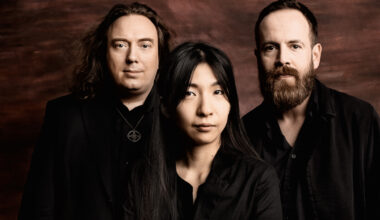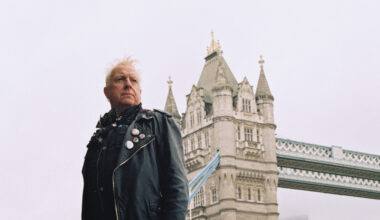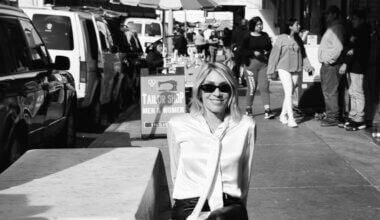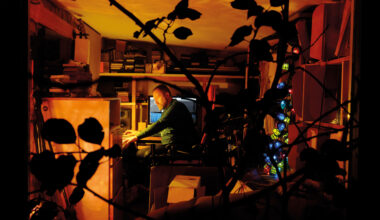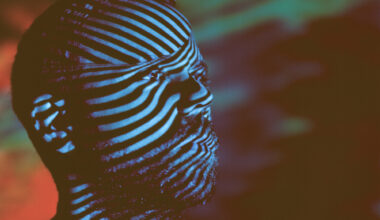Depending on your vintage, you’ll know him from Gong, or as the big cheese of The Steve Hillage Band, or maybe he’s arch Orb collaborator and System 7 kingpin. As a boxset of Gong’s Virgin years emerges, we enjoy a free-range chat with the multi-faceted Steve Hillage
These days, the corner of west London known as Notting Hill is synonymous with billionaires, the Cameron set and that Richard Curtis film, but it hasn’t always been so.
After the race riots and slum landlords of the 1950s, the area was a veritable wasteland, and in the 60s and 70s the easy access to squatted accommodation proved to be a strong draw for alternative types of various denominations. Countless acts, from militant space rockers Hawkwind to Bob Marley, The Clash and Killing Joke, thrived in the area’s non-conformist atmosphere. As well as being home to the fledgling Island Records and the first Rough Trade shop, which acted as a distributor for the inaugural generation of punk labels, future billionaire Richard Branson lived on a house boat on Regent’s Canal during the early days of the Virgin empire.
Steve Hillage, born in Walthamstow and raised in nearby Chingford, clearly remembers the first time he ever visited Notting Hill in the 60s.
“It was a major hippy area,” he recalls. “The first time I came here was when I was at school and I came to buy some pot… and I succeeded!”
Where did he find it?
“My lips are sealed,” he laughs.
That experience was the start of a journey, in both cosmic and literal terms, that has taken Hillage across the globe, but this part of London has remained his base. Speaking to Electronic Sound in a modest but lavishly equipped studio on the north side of the Westway, he tells us he first moved here in 1972.
Aside from stints in France, when he was in Gong, and a spell of rural English life during the height of The Steve Hillage Band (who recently embarked on their first full tour for 40 years, with the current members of Gong acting both as support and backing band), he and his partner and System 7 bandmate Miquette Giraudy have been here ever since. He must have seen the place change beyond all recognition, we suggest.
“It’s changed a lot, but it’s still got a nice feeling on the street, you know. Maybe it’s because I know it so well, it doesn’t feel like other parts of London. I like it.”
Rather like the area itself, Hillage is someone whose roots are entwined with generations of musical movements. He remembers The Clash being based round here, and later got to know Killing Joke through The Orb’s Alex Paterson.
“Alex went to school with Youth and then worked as a roadie for Killing Joke for a while, but we also have a funny connection with Jaz Coleman too, because he was living in Cheltenham when he was 14, and he had a job as a gear humper at Cheltenham Town Hall.
“He was working at a gig Gong played in April 1975, which is the show where Daevid Allen left the band. We all went onstage and started playing and it was, ‘Where’s Daevid?’. He wasn’t there! We soldiered on, but he’d scarpered, which Jaz had witnessed.”
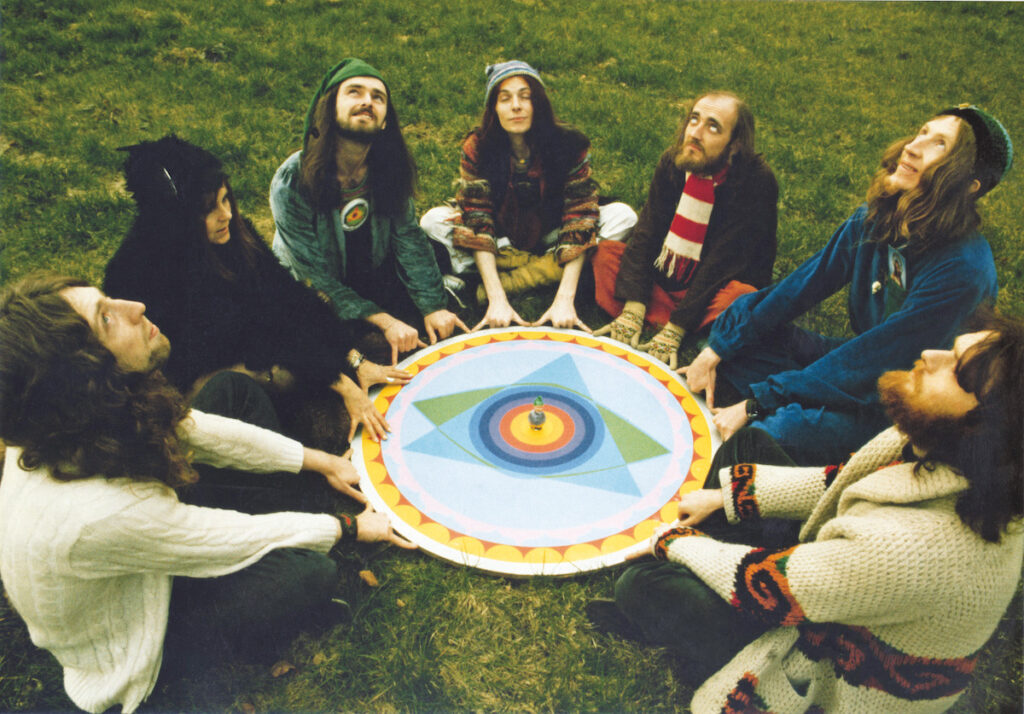
Hillage’s part in the classic Gong line-up of the early 70s has come back into the spotlight of late with the recent release of ‘Love From The Planet Gong’, a sumptuously packaged boxset collecting together their four Virgin albums.
His relationship with Virgin, whose first office was off the nearby Portobello Road, stretched across two decades. He recalls Mike Oldfield using the downtime from Gong’s ‘Flying Teapot’ sessions at The Manor studio in Oxfordshire to finish what would be the label’s first release, ‘Tubular Bells’.
Hillage and the band’s drummer Pierre Moerlen joined the line-up for a live performance to launch ‘Tubular Bells’ at the Queen Elizabeth Hall on London’s South Bank.
“We all thought ‘Tubular Bells’ would do OK, but no one really knew it would develop into the kind of phenomenon that it did,” offers Hillage. “It was almost during the course of that gig when we all realised. There was an enthusiastic audience and quite a lot of notable people there who Richard Branson had invited.
“As the gig progressed, we noticed from the stage that people were absolutely loving it. By the time we got to the end, we were going, ‘Wow, this is really going to be something!’. It was a very canny move of Richard to put that gig on, actually, it was a really smart move. You’d have to say it was a bit of a gamble, but then he is a bit of a gambler, as we all know.”
Does he ever bump into his former label boss these days?
“I saw him in the street round here about eight years ago and we said hello. He’s always friendly.”
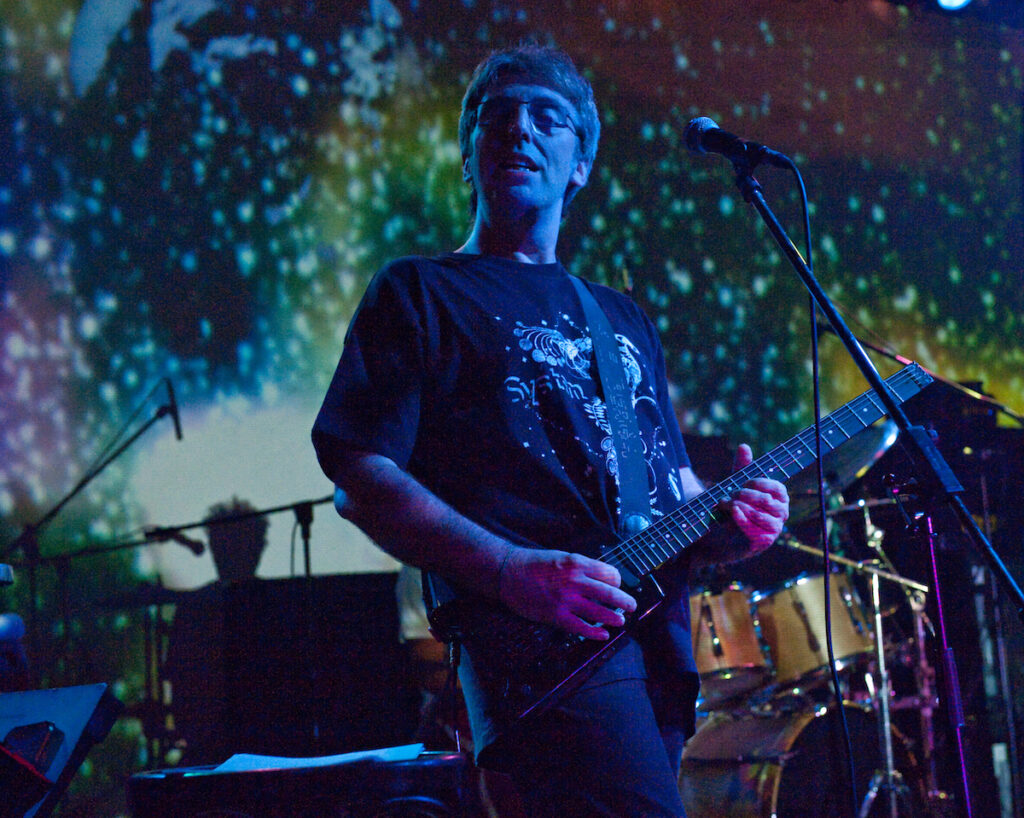
It would be Virgin’s dance offshoot 10 Records that would, at the end of the 80s, give Hillage the chance to start his System 7 project, but his interest and involvement in the origins of electronic music actually stretch back right to the beginning of Gong, whose highly original fusion of jazz, funk and psychedelic influences was way ahead of its time.
Gong’s founder member Daevid Allen hung out with composer Terry Riley in Paris in the 60s, and he used what he learned from the minimalist pioneer about tape loops in the band. Hillage points out that their keyboard player, Tim Blake, was also doing “really innovative stuff with synthesisers”, a major part of Gong’s sound.
“The main synth we used was the MS,” he recalls, “and then Tim expanded into a Minimoog, and he used a Mellotron on some of the records too. It was a rented Mellotron. A Mellotron wasn’t something you could carry around with you, you’d need an army of roadies to shift one. This was a time when a lot of people were starting to use synths. Pink Floyd were using them on ‘Dark Side Of The Moon’, but the way he used that set up, with echo delay, was really innovative.”
Hillage, who used an Echoplex echo unit and Fender Twin amp to create his sound, updating more recently to a Line 6 box as his integrated effects unit, explains that it was his love of German bands like Neu! and Amon Düül that he brought to the table. In fact, the night before our chat, he’d been to the Jazz Cafe to see Neu! guitarist Michael Rother in action, and was still buzzing from the show.
“It’s one of the major roots of electronic music, I mean, especially because at the very beginning Michael Rother and Klaus Dinger were associated with Kraftwerk. That motorik beat too. I loved the gig. Actually, when I was producing Simple Minds, they were really into Neu! and the Düsseldorf sound. We used to play Michael Rother’s stuff in the studio, especially his solo album ‘Katzenmusik’. The first track he played last night was from that album. It made me quite emotional. It was lovely, such a great sound.”
Stepping away from bands and working as a producer for a long stint in the 80s, meant Hillage kept up to date both with advances in technology and the development of dance music.
“I was working as a producer through most of the 80s, but I was still signed to Virgin as an artist and every now and again they’d say, ‘Steve, have you ever thought about doing another album?’. But I was really enjoying producing at the time. During the 80s, I became more and more involved in the course of electronic music, so there came a point around 1987 or 1988 when Miquette and I decided that if we’re going to do another record, it would be dance-oriented. Eventually, in 1989, we went to Virgin and they said, ‘Great idea!’. That was around the time we first met Alex Paterson.”
As well as strong links with Paterson that continue to this day, the link with Virgin’s 10 imprint started a long, close working relationship with Detroit’s techno community.
“10 had put out the very first Detroit techno compilations,” he says. “I started listening to these and thought, ‘Wow, this is fantastic stuff’. They said, ‘Derrick May is coming over next week, do you want to meet him?’. Well, is the Pope Catholic, you know? We went to dinner with him and got on really, really well. He knew about Gong, but mainly we bonded because he was a big fan of Manuel Göttsching, who was a friend of ours from the 70s, so it all came together.”
It wasn’t long before May was collaborating with Hillage and Miquette Giraudy on the first System 7 album, working together in a studio in the Canelot building (two minutes from our current location). The Detroit connection extended to an ongoing relationship with Carl Craig and a US show with Underground Resistance, the poster of which remains proudly displayed in the studio to this day.
“I had a great conversation with [UR’s] Mike Banks,” Hillage remembers. “He played guitar with The Brides Of Funkenstein alongside George Clinton, who was from Detroit too. It turned out that I’d seen him at a gig at the Hammersmith Odeon in 1978.”
Collaboration remains at the heart of Hillage’s and System 7’s work. He and Giraudy have worked hand in glove with The Orb since their inception, and continue to do so.
“We’ve just got a really good communication and understanding with Alex. Every now and again we get together and make tracks. Some of them go on System 7 records and some of them go on Orb records. And long may it continue.”
Likewise, they regularly team up with Eat Static, who they’ve known since the days of Megadog’s early 90s Midi Circus tour, performing under the System Static banner.
More recently though, they’ve been looking to Japan, a major territory for them, for remix swaps. They’ve even been honoured in the country with their own sake that Steve describes as “our pride and joy”, pulling it from the studio fridge to show us, but insisting, “I’m not going to open it”.
It’s been made by a noted artisan sake brewer in the north of Japan, who happens to be a System 7 fan. But this was no simple endorsement deal. After a conversation with Hillage and Giraudy about a Japanese philosopher who believed that water had memory, the brewer persuaded the duo to play as the sake fermented in a huge wooden vat, to imbue it with their individual vibration as a mixture of fans and local dignitaries looked on.
The sake itself will soon be joined by an accompanying double CD set, provisionally titled ‘Field Of Dreams’, the first of which will feature a DJ mix of the brewer’s favourite System 7 tunes.
The face Hillage makes as he explains this says it all. While he’s a little amused and fairly incredulous at the unlikeness of the crazy scheme, he’s also humbled, flattered and full of respect that someone has been moved enough to go to so much trouble.
It’s an attitude of undimmed, innocent enthusiasm that’s transported him such a long way, from those misspent schooldays venturing down to Notting Hill in search of adventure and mind-altering substances, to playing a pivotal role in so many of the different musical movements to follow. An attitude that we certainly have no problem raising a glass to.
‘Love From The Planet Gong: The Virgin Years 1973-75’ is on UMC
